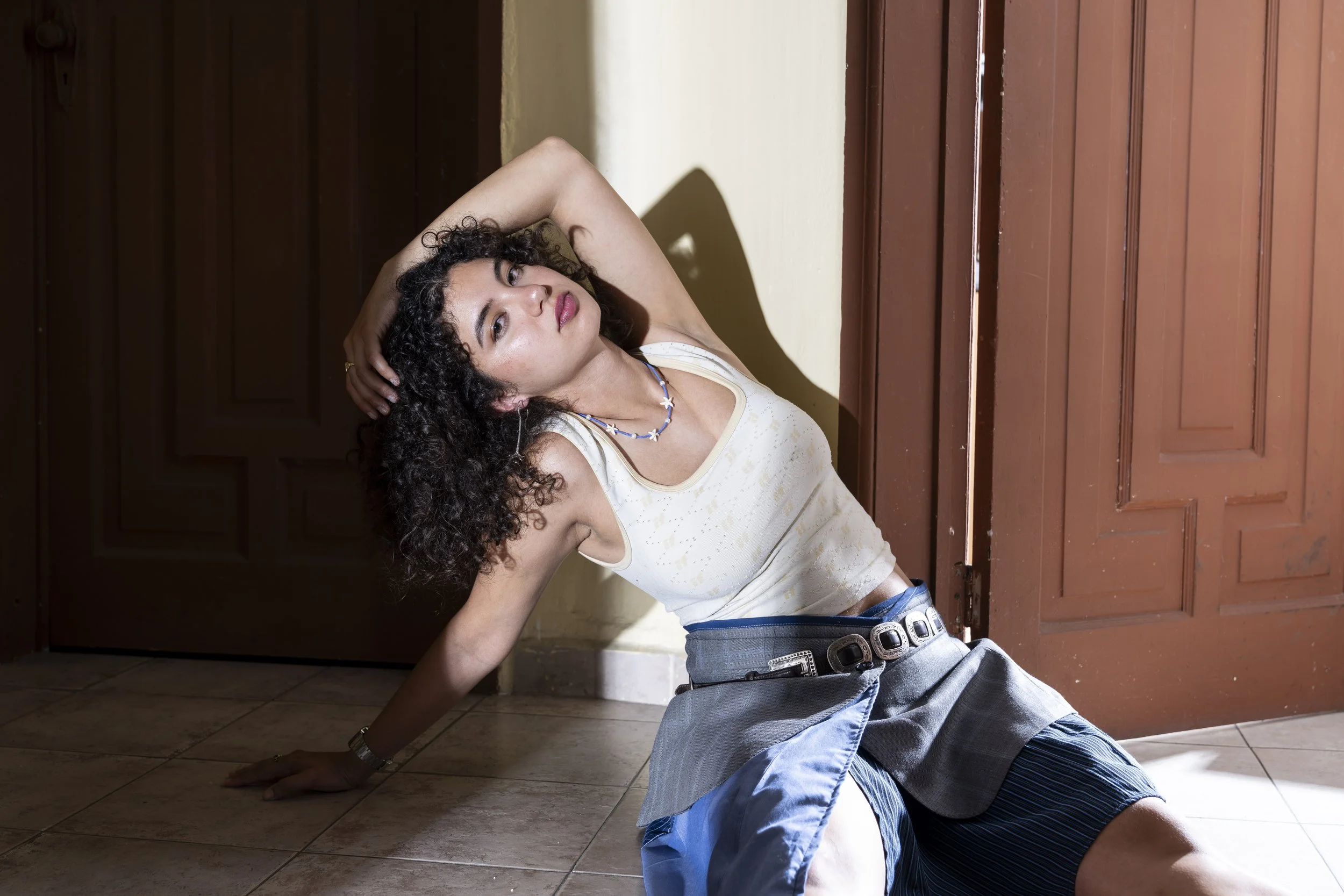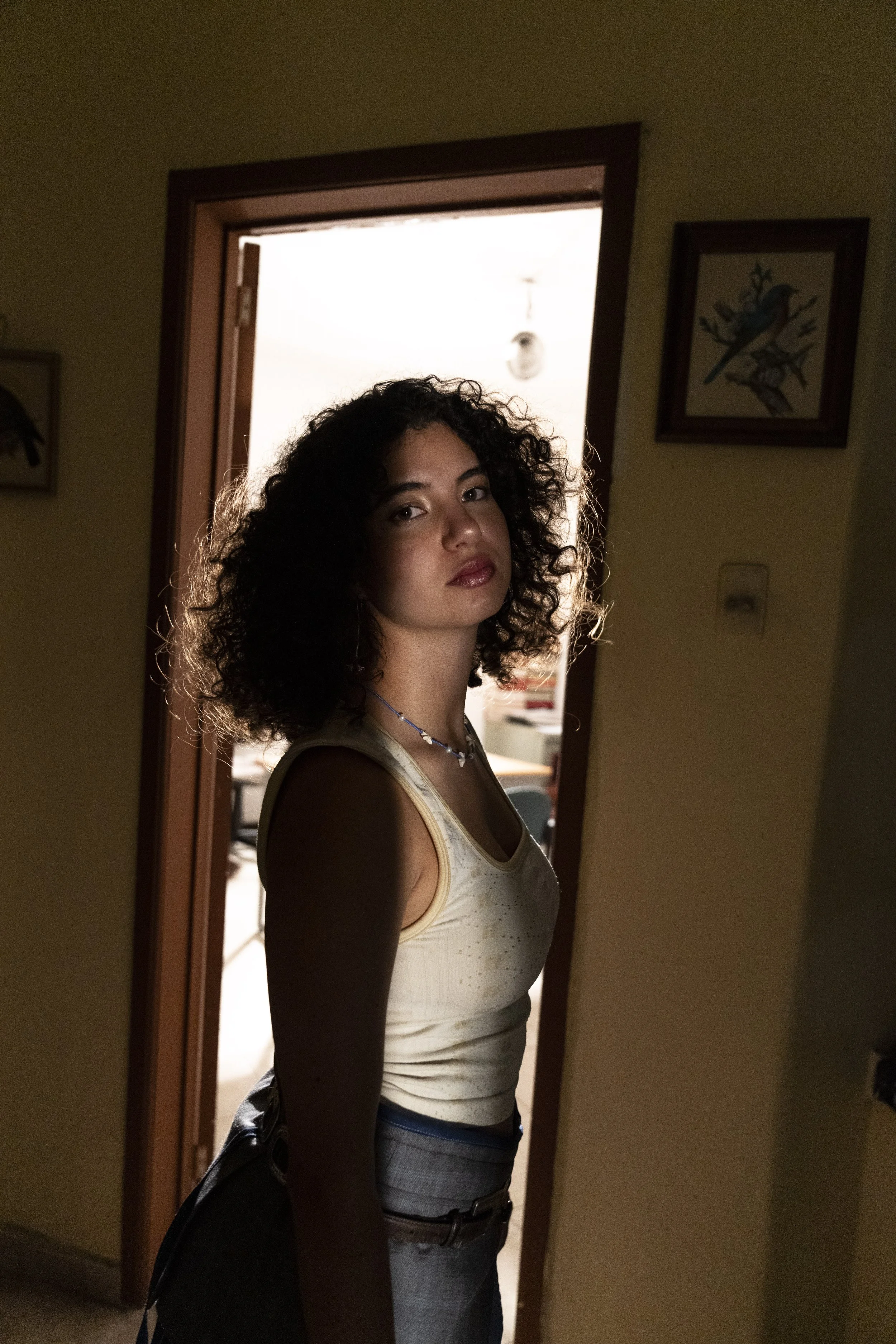Q&A: Valeria Miró Finds Healing in Her New Single “Another Day”
INTERVIEW
INTERVIEW
MEXICO CITY-BORN, LONDON-BASED SINGER, SONGWRITER AND PRODUCER VALERIA MIRÓ shares her stunning new single “Another Day,” a soulful, jazz-tinged reflection on a friendship that unraveled without warning. Fully self-produced, the track highlights Valeria’s ability to weave jazz, soul, funk and Latin influences into something warm, intricate and deeply personal.
Created between her home studio in London and Colectivo Casa Azul in Mexico City, “Another Day” is the result of months of collaboration with close friends and longtime musical partners. Live instrumentation, layered vocal arrangements and subtle experimental textures blend to form a sound that feels both intimate and expansive.
Lyrically, the song explores the confusion and emotional quiet that follows the sudden end of a friendship. What began as a moment of isolation transformed into a healing creative process for Valeria, one that ultimately became a celebration of support, community and letting go. “Another Day” marks the beginning of a powerful run of releases from the rising Latin pop-jazz artist, and signals a confident new era in her sonic world.
LUNA: Can you walk us through the moment that inspired “Another Day”? What emotion or idea sparked the song?
MIRÓ: I had a friend I was very close with — we even lived together — and a bit out of the blue the dynamic started to change. Before I could even understand what was going on she moved out without saying a word to me, and it just left me feeling so confused and out of sorts.
LUNA: You’ve shared that the track was born from the end of a friendship. How did that experience shape the tone and lyrics?
MIRÓ: I wanted to tell the story through the verses, but leave the chorus empty, with just humming and the instrumental to paint that feeling of empty space she left in the house. The outro of the song is a repeating phrase that gives this feeling of overthinking — going through everything in my head over and over to try to understand how it all happened.
LUNA: You self-produced the song, which is incredible. What was your process for shaping its sound from start to finish?
MIRÓ: It was a lot of throwing spaghetti at the wall and seeing what sticks. A lot of experimenting with super classic, old school arrangement choices mixed with more unconventional sounds. There are sections of the song where the whole instrumentation was played live in the same room (drums, piano, and bass), and there are bits where we used a cup full of pistachio shells as a shaker, or the scuffing sound of a puffer jacket as background texture.
LUNA: The track blends jazz, soul, and Latin influences seamlessly. How do you approach balancing all those genres in your production?
MIRÓ: I think that balance came naturally by collaborating with musicians with different backgrounds. My co-writer Seffi has more of a jazz background, and I — having grown up in Mexico — am always gravitating back to Latin rhythms and styles. It was fun to not have a specific genre in mind or strict rules while building the arrangement. We were inspired by such a wide range of music, and it trickled down into the track.
LUNA: You recorded parts in both London and Mexico City. How do those two musical worlds influence your creative process?
MIRÓ: For me, the London neo-soul scene is one of the most exciting things happening musically in the world. It feels alive and vibrant — grounded in cultural traditions yet full of fresh energy. I love how being surrounded by that scene has expanded my horizons. In contrast, what we recorded in Mexico felt like coming home to a warm meal passed down through generations. The clave rhythm we used has been present in my life since childhood, and it felt special to finally incorporate it into a song.
LUNA: Collaboration plays a big role in this track. What was it like working with Seffi, Federico Dal Maso, and Rosa Cecilia?
MIRÓ: I love sharing the creative process. I feel so privileged that so many musicians I admire were so generous with this track, shaping it bit by bit into something I never would’ve dreamt up on my own. I had never worked on a project this big or taken so long to flesh out a song, but bringing new people into each section of the arrangement gave the track a fresh perspective every time.
LUNA: There’s a real warmth to the song despite its bittersweet subject. Was that emotional contrast intentional?
MIRÓ: Yes! As I worked on the song and the autumn months kicked in, I realized I felt much cozier in my life and in my home without having to hold space for someone who, in the end, I didn’t quite understand. That confusion slowly turned into relief, and the instrumentation reflects that.
LUNA: What message or feeling do you hope listeners take away from “Another Day”?
MIRÓ: There’s so much lightness in letting go of what doesn’t serve you anymore — even if you can’t always get closure.
LUNA: As a producer and an artist, how do you know when a song is finished or ready to share?
MIRÓ: It’s so hard to know! I usually set a deadline for myself so I don’t tinker with the details forever. It lets me move on, make more music, and tell more stories.
LUNA: “Another Day” is the first of several new releases. What can we expect from this next chapter of your sound?
MIRÓ: I’m experimenting with so much! My next release is going to be my first one in Spanish, which I’m really excited about. It leans into Mexican melodies but has a more produced, upbeat feel. London is such a melting pot of genres and musical languages, and I’m trying to absorb it all while staying rooted in my own culture.


